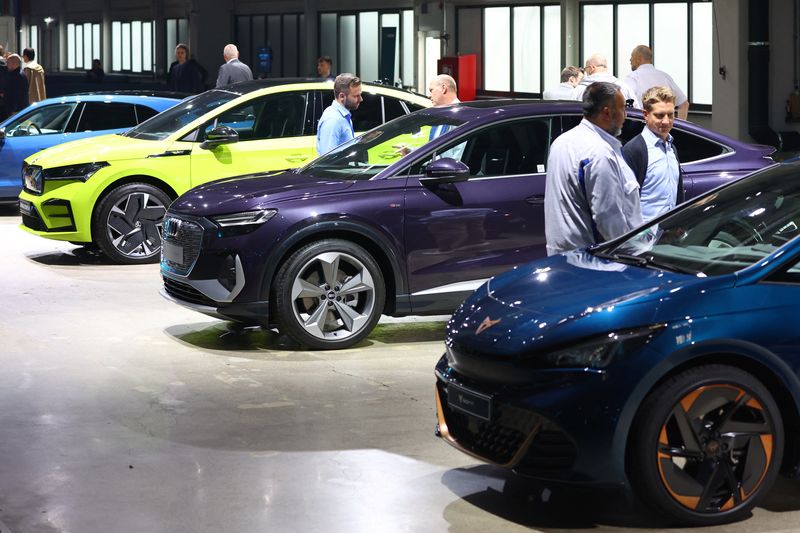By Greta Rosen Fondahn and Alessandro Parodi
(Reuters) - New car sales in the European Union rose 12.1% year-on-year in January, helped by double-digit growth in Germany and Italy, data showed on Tuesday, with registrations of fully electric cars growing in annual terms but slumping from December.
Total registrations at Europe's two largest carmakers Volkswagen (ETR:VOWG_p) and Stellantis (NYSE:STLA) rose by 11.5% and 15% respectively in January, but were down 2.9% at Renault (EPA:RENA), data from the European Automobile Manufacturers Association (ACEA) showed.
Sales of new battery electric (BEV) cars dropped 42.3% from December to 92,741 vehicles, although that was a 29% increase from a year earlier.
The trend was driven by Germany and France, the two biggest BEV markets in the bloc, where fully electric sales fell respectively by 59% and 46% from the previous month, but rose 24% and 37% from a year earlier.
The figures reflect a global slowdown in electric vehicle sales, which dropped 26% in January from December but rose 69% from a year earlier, according to data published last week, as subsidy cuts or tighter rules in Germany and France weighed, among other factors.
As the high cost of EVs has become a barrier to broader mass adoption, Stellantis and Renault are trying to develop more affordable EVs.

EVs - whether fully electric models, plug-in hybrids or full hybrids - accounted for 47.5% of all new EU passenger car registrations in January, up from 42.7% a year earlier, but down from 53.3% in December.
U.S. EV pioneer Tesla (NASDAQ:TSLA) saw a 66.9% yearly increase in EU sales in January. The number of new vehicles registered in January in the EU, Britain and the European Free Trade Association (EFTA) rose by 11.5% to 1 million vehicles, the ACEA said.